Top 7 Vienna schools for international children
Top schools in Vienna with international admission and English language teaching. How to enter a Vienna school.
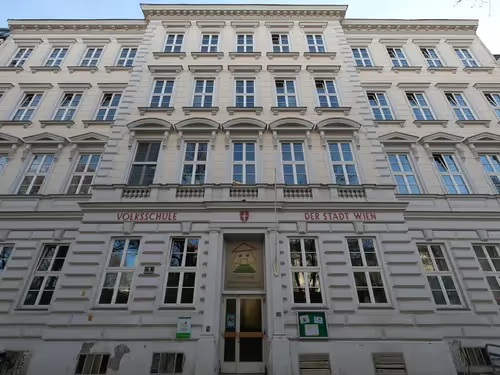
Austria is a country that offers a comfortable living and working environment for foreign citizens wanting to relocate to this beautiful part of the world. High level, free secondary education and all the necessary conditions for foreign children to adapt to their new life are available here. It is also worth noting that secondary education certification does not need to be confirmed when entering universities in any of the EU countries.
Choosing a school for a child in Austria can be a difficult task since first, you need to understand the differences between professional and academic areas, as well as the differences between public and private educational institutions. In addition, among the important nuances to be considered when moving is the availability of schools for foreigners, the difference in quality and cost of education, comparison of cultural characteristics, the requirements for the level of English or the national language of the country, and the future prospects for admission to college.
We have prepared an article that contains detailed information regarding the school system in Austria and a brief overview of the best educational institutions in Vienna.
IMPORTANT: Luxury Immobilien GmbH only provides services for buying, renting and selling real estate in Vienna and other federal states of Austria. You can also get legal advice concerning investments in Austrian real estate, starting a business or obtaining a residence permit. *ALL THE FOLLOWING INFORMATION IS FOR INFORMATION PURPOSES ONLY.
School education in Austria
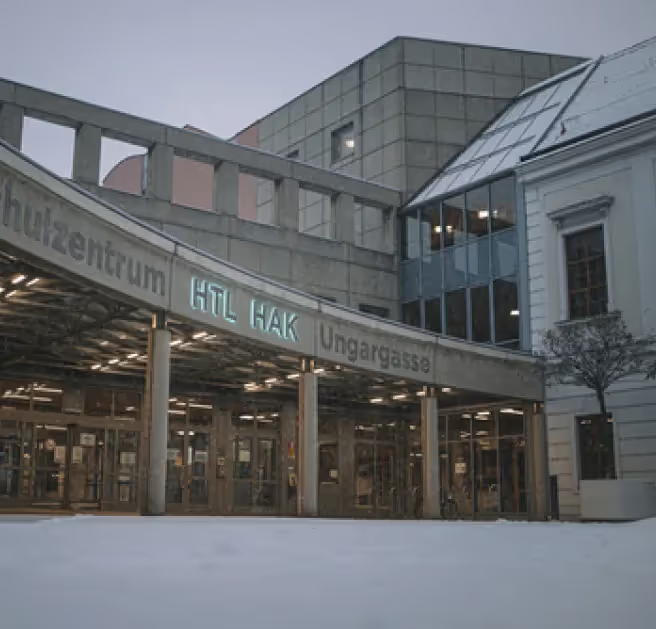
School education in Austria is considered one of the best in Europe and is compulsory for all children aged 6 to 15 years old (these are grades 1–9). Parents send preschool children to kindergartens (Kinderkrippen), but they do not involve preschool education and are not included in the responsibility of the Ministry of Education. Children in Austria are taught to read and write at school, so it is completely down to the parents to decide whether or not to send their child to kindergarten.
In Austria, there is a 4-year system in schools and during each of the educational cycles, much attention is paid to the individual development of the child and their career guidance. The education system allows schools to provide initial training for further development of the profession and career building. In general, the basic secondary education programme in Austria is in many aspects the same as in other countries. For example, schoolchildren here also study natural sciences, mathematics and foreign languages.
Note: The duration of the school year in Austria is from September to June and the school year consists of 2 semesters. Throughout the year, children have weekends and a lot of public holidays – primarily religious ones. During the Christmas holidays school children do not study for 14 days, during Easter the holiday is 10 days, and on the Catholic holiday is Whitsunday – 4 days.
The school system in Austria includes 3 stages:
- Elementary school (Volksschule or Grundschule) – grades 1–4, from 6 to 10 years.
- Secondary school (Hauptschule or Cooperative Mittelschule) – grades 5–8, from 10 to 14 years. This can also be the junior classes of a higher secondary school or gymnasium – Allgemeinbildende höhere Schule (AHS).
- Higher Secondary School (Polytechnische Schule) – grades 9–12, from 14 to 18 years. This includes the obligatory 9th grade, which the student finishes at the age of 14/15.
If a child turns 6 years old before September 1 of the current year, then the child is obliged to attend primary school, which is under the jurisdiction of the Regional Authorities, but is funded by the federal government. During the process of enrolling in an educational institution, the future student is tested to determine the level of his/her development and knowledge. If necessary, the pupil can enroll in preparatory courses. Knowledge of German plays a big role during the interview.In Austria, a child is ready for school if they can study well in the first grade without being overloaded at the same time. If the level of readiness is insufficient, then the child can be accepted into a preschool group in which classes are held according to a special curriculum – separately or together with the 1st grade. If a child does not speak German well enough when entering school, then he/she will need to study in a special correctional class or enroll in German language courses.

Note: If a child turns 6 years old before March 1 of the following year, he/she can still be admitted to primary school. But enrollment in the 1st grade is possible only if the child has a sufficiently high level of knowledge. Under these conditions, parents must submit a written application to the administration of the educational institution. Also, the child will be asked to take an exam to show their readiness to study.
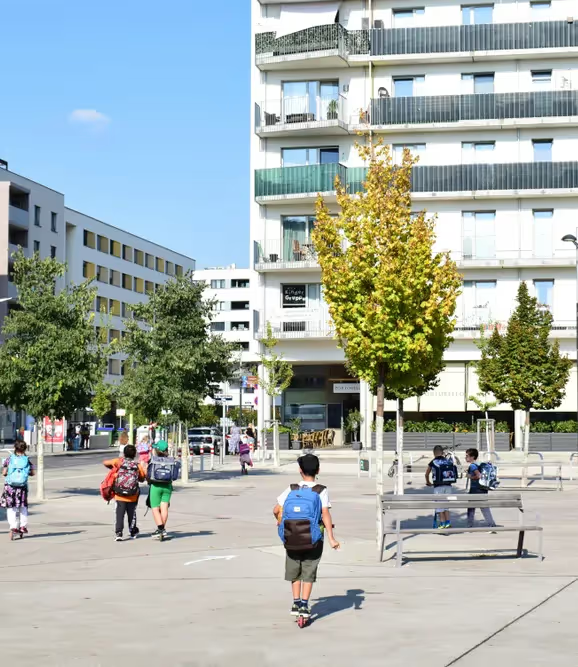
Parents receive recommendations on the further educational trajectory for the child, corresponding to their interests and academic performance from school in the first semester of the 4th grade. Then the student graduates from primary school and goes to compulsory secondary school.
The disclosure of the abilities and interests of each student are used as the main direction to determine the secondary school programme. Children receive consultations within an in-depth educational and professional framework. These consultations help to make the best decision regarding the direction of further education and career progression of the child.
In Austria, secondary schools are divided into 2 levels. At the very beginning, all students attend a comprehensive secondary school, which includes grades 5–7. From here, students can either continue their studies at a comprehensive secondary school (Mittelschule), or go to an academic secondary school (AHS-Unterstufe). An academic school always has the following profiles: grammar (Gymanisum), economics (Wirtschaftskundlisches Realgynamiasum) or natural sciences (Realgymnasium). These schools include grades 8–12, but students can transfer to a vocational/technical school from the 9th grade. The secondary academic school is suitable for students who will then go on to enter university within a similar field. In addition, students have the opportunity to switch to a professional programme after the 8th grade.
The compulsory ninth grade (14–15 years old) can be completed at the senior polytechnic school of the Polytechnische Schule, where students can obtain a specialty of secondary vocational education, or prepare for further education. Practical knowledge is an important part of the educational programme at the Polytechnische Schule where students also visit enterprises as part of their studies. The chosen profession of the students affects the duration of study in high school. For example, it is necessary to study for 3 years to work as a mechanic or a chef after graduation. But to obtain the specialty of a chef-waiter, the study period increases to 4 years.
Most students in Austria continue to study until the age of 18, although secondary school in Austria is mandatory only until the age of 15. Students can choose a vocational school (Berufsschule), which provides both school subjects and an internship within the current career interests of the student. Technical schools are designed for students in grades 10–13.
Passing exams is mandatory for the transition to the next grade in the school year. To enter an Austrian university or college, you must pass the Matura final exam, which takes place in German. This exam consists of 2 blocks: written and oral. Upon successful completion of the exam, the graduate receives a Maturazeugnis certificate, which indicates all the grades received.
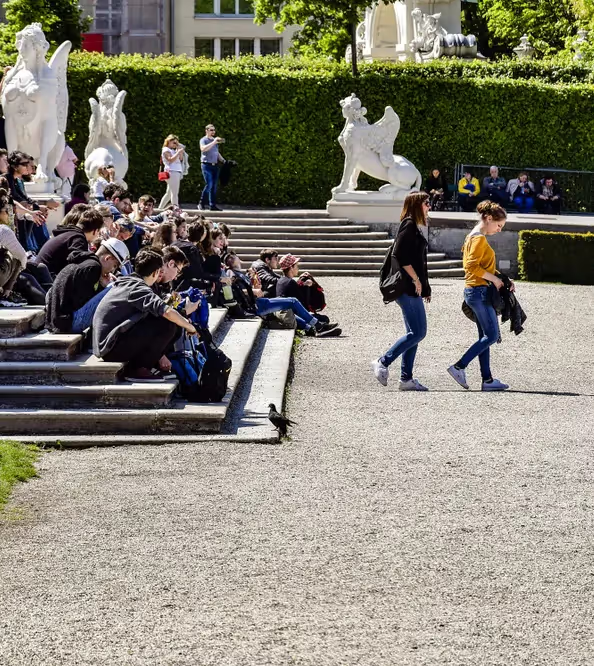
Public, private and international schools
In Austria, schools are divided into 2 main groups – public and private (including international), with most children (90%) attending public schools in the country.
Public schools in Austria
Free tuition at the expense of state subsidies is the main advantage of public secondary schools. It is necessary to pay only for education materials, extracurricular activities and school meals. The quality of education in all public schools in Austria is of a high level, for example, according to data for 2019, the government allocated almost USD 15,500 for each child's education in secondary school. This is much higher than the average compared to other OECD countries (the Organization for Economic Cooperation and Development, which includes about 40 states), which is USD 10,000.
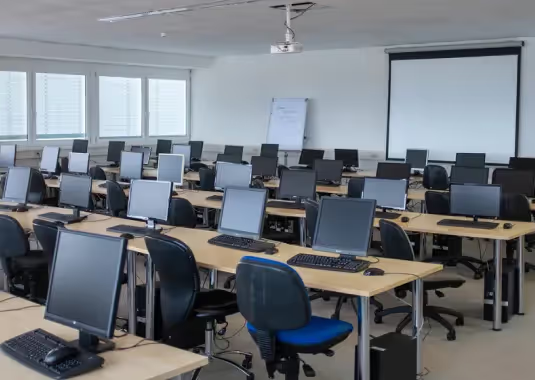
Important! Public schools in Austria are free for everyone, including children of foreign citizens. This is a great advantage compared to other European countries. In Switzerland, for example, public schools accept foreign children only on a fee basis, and the cost of education is very high.
German is the language of education in all public schools in Austria. If the child does not know German well enough, then he/she is offered remedial classes and separate courses to improve the level of German proficiency in most educational institutions.
In Austria, children usually go to a school that is located in their area of residence but the application process to enroll in different public secondary schools may vary. The main documents required, in addition to the initial application form, includes a scanned copy of the child’s passport, a photo, a report card with grades from the previous place of study and recommendations from his/her teachers. There will then be a face-to-face interview. If there are limited spaces in the public secondary school, due to high demand of the educational institution, then parents of schoolchildren are invited to join the waiting list. For this reason, it is recommended to apply to your choice of school at least one year in advance.
Private schools in Austria
There are more than 600 private schools in Austria, but only about 10% of children study in them. The main reason for this is the high cost, especially against the background of free education in public educational institutions.
In Austria, private schools are divided into religious, Waldorf, Montessori and international schools, depending on the programme used, although international schools are the most popular among foreign citizens. In addition, there are boarding schools in Austria where the child studies and lives on-site during the school year.
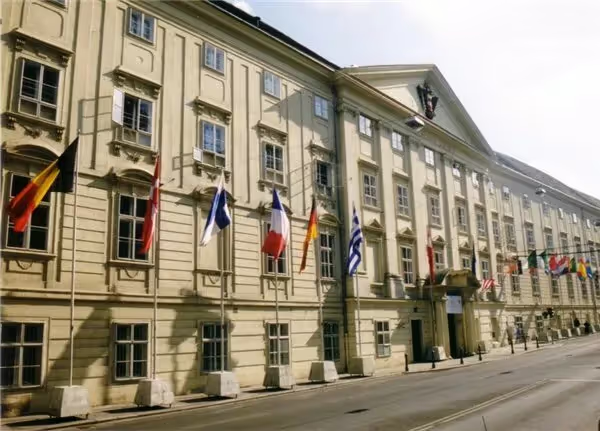
Religious schools
Most of the private schools in Austria have a religious orientation, and some of them are directly connected with the Catholic Church. All religious schools are characterized by strict discipline. In these types of schools, there are also standard educational directions, such as, for example, the International Baccalaureate (IB).
Montessori schools
Several private schools in Austria follow the Montessori method, which is popular all over the world. The ‘normal’ standardized teaching approach and testing are not the basis for learning in Montessori schools, so the style of teaching children can be very creative. Basically, such schools provide only primary education. Full secondary education in the Montessori Method can be obtained at the International Montessori School in Perchtoldsdorf, which is part of the Mödling District.
Waldorf schools
These educational institutions follow an alternative pedagogical system, where they have many similarities with the system of education in Montessori schools, and, as a rule, much attention is paid to creativity and the development of the imagination of students. The educational programme includes artistic and intellectual classes and students receive both primary and secondary education.
International schools
These schools are most popular among expats, due to the high quality of education and multicultural environment, as well as an array of opportunities for non-academic education. In Austria, you can find many British, French and American international schools that follow the educational programmes of these countries. GCSE and A-Levels qualifications can be obtained in English schools, while SAT and AP – in American schools. The International Baccalaureate (IB) is the gold standard for international schools, so most schools offer this form of education in this programme.
Note: Private education is expensive in Austria, including international schools. The cost of teaching can reach EUR 50,000 (USD 56,600) per year. Boarding schools are even more expensive – up to EUR 60,000 (USD 68,000) per year. You may also face additional costs: for example, for admission and application in many schools, you need to pay approximately EUR 5,000 (USD 5,684).
Is it possible to enroll in an Austrian school in the middle of the year?
Many schools in Austria are ready to accept a new student if you move to Austria in the middle of the school year. The most important thing is the availability in the classroom.
If the school is a popular education institution and all classes are full, you will be added to the waiting list. In this case, it is advisable to contact the administration of the school you are interested in, in advance to find out if you can enroll in that school at the desired period.
Below we present a selection of the best private schools in Vienna, most of which enroll new students throughout the school year.
The best schools in Vienna
The selection of the best schools in Vienna includes both international and religious schools.
Amadeus International School Vienna
Amadeus International School Vienna offers a wide range of educational programmes and extracurricular activities, including preschool level for children, so you can send a child to the same school from 3 to 18 years. Classes here are conducted mainly in English. Boarding services are also available here from the 6th grade onwards (approximate age – 11–12 years). In the boarding house, children live in 2-bed rooms with amenities and internet access. You can get 1- and 3-bed accommodation in the boarding house upon request.
Education in Amadeus International School Vienna is conducted in accordance with the International Baccalaureate (IB) programme, and students can study in more depth selected professional areas, thanks to specially developed curricula.
The next feature of Amadeus International School Vienna is the Academy of Music and Arts built into the school’s curriculum. Here children can receive innovative musical and artistic education, as well as develop their own talents and choose their own creative path. A wide range of extracurricular activities and events, including team and individual sports, are also available to all students at Amadeus International School Vienna, as well as individual English language training.
Note: The academic performance and average IB score at this school in 2020 significantly exceeded the world average. Almost 100% of Amadeus International School Vienna graduates successfully enroll in high schools and universities.
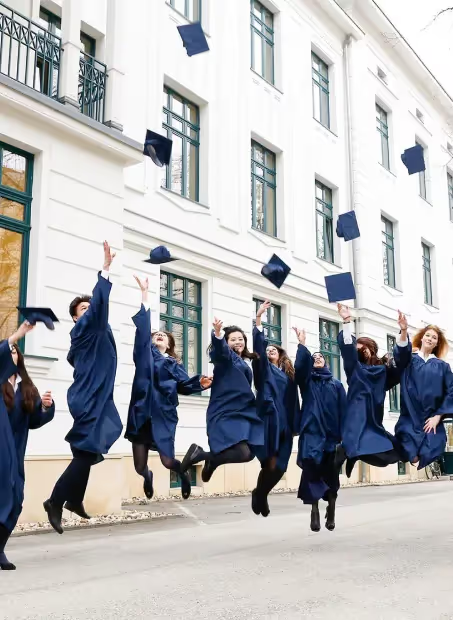
The admission and enrollment procedure consists of 3 stages:
- Submitting an application via the form on the school's website (https://amadeus.openapply.com/apply), directly to the admissions office or through an accredited agent of the school. It is necessary to provide the following documents together with the application: a scanned copy of the child’s passport, a digital photo, a school report card from the previous 2 years and recommendations from teachers (if available), as well as a copy of registration at the place of residence. The application must be completed in English, and all documents must be in English or German. The child will then be interviewed. When entering secondary school (grades 6–11), the students also need to pass certification in mathematics and English. The mandatory registration fee of EUR 300 (USD 340) is paid at this stage. If there are no available spaces in the required class, then the child's parents can apply and pay the registration fee to be put on the waiting list. The registration fee is non-refundable.
- Certification. The child needs to spend a "one-day trial" in the institution for admission to primary school. This is done so that teachers can assess their academic performance in the main subjects and look at their level of socialization. Then the student passes an English language test and has an interview with the Head of the primary school. Upon admission to secondary school, the candidate also spends a "trial day" in the institution (if possible, also spends the night in a boarding house), passes tests in mathematics and English, and is interviewed by the course coordinator and the Head of the boarding school.
- Enrollment. At this stage, it is necessary to sign the school contract and confirm the payment of the entrance fee. If an applicant needs a residence permit to study in Austria, then it is necessary to submit an application no later than 4 months before the expected start date of education.
The school provides benefits for larger families. In the 2021–2022 academic year, the discount for school attendance by the second child is 10%, and for the third, fourth and each subsequent child – 5%. Meals are included in the tuition fee.
Tuition fees:
- The 2021–2002 primary school academic year varies from EUR 18,180 (USD 20,600) to EUR 21,780 (USD 24,690).
- In secondary school – from EUR 25,030 (USD 28,370) to EUR 29,820 (USD 33,800).
- Tuition together with all the services of the boarding house ranges from EUR 46,640 (USD 52,870) to EUR 52,110 (USD 59,000).
School address: Bastiengasse 36-38, 1180 Wien.
Phone and email: +43 1 470 30 37 35, info@amadeus-vienna.com, admissions@amadeus-vienna.com.
Danube International School Vienna
Danube International School operates according to the IB standard and accepts students aged 3 to 18 years. Children from 60 countries around the world study at this school, with most of them being British, Austrian, American, Dutch, German, Italian and Russian citizens. Over the past 6 years, 98.72% of school graduates with international baccalaureate diplomas have successfully entered universities and for 5 years, the average diploma score was 33.5. There were also graduates who received the maximum possible 45 points. The school demonstrates high academic standards, and training is focused on 4 main components – culture understanding, emotional intelligence, communication and cooperation.
The school is taught in English so fluency in English is required for admission to grades 11 and 12 when students are preparing to receive an international baccalaureate diploma. All exams are held in English, and the English Language Development coordinator tests the candidates. This requirement does not apply to students of lower grades.
To enroll in Danube International School Vienna, it is necessary to fill out an application form and submit it to the registrar, either by bringing it to the school or sending it by email. It is also obligatory to provide exam results from the previous school, a birth certificate and a photo. In the process of entering the school, an assessment of the level of preparation of the child will be carried out. This is done to select a suitable class for the future student. If there are more applicants than there are places in the class, priority will be given to children who have brothers or sisters who are currently studying or have studied previously at this school, as well as candidates who applied earlier than others.
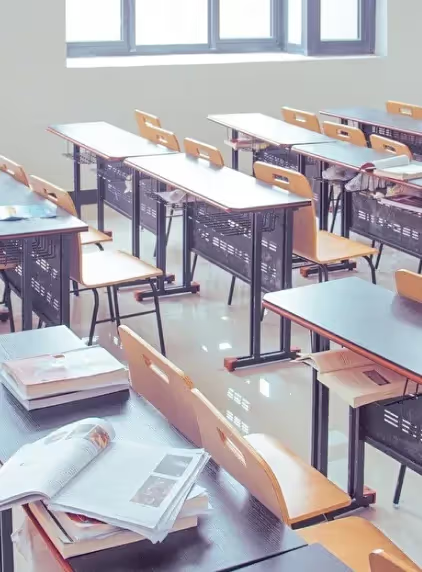
English documents on the child's progress in their previous school are required before admitting any student. The applicant also has an interview with the Principal or the Headteacher of the school before enrolling and will be expected to pass a standard test for cognitive abilities, including mathematics and English. If the applicant wants to study other languages, such as Spanish, German or French, additional testing may be required to identify students in the appropriate study groups.
The non-refundable application fee is EUR 300 (USD 340). For new students, an enrollment fee of EUR 4,100 (USD 4,650) and a capital contribution of EUR 1,970 (USD 2,230) are needed for prospective students. If there are available places, a new student can be admitted to the school at any time during the school year.
Tuition fees: from EUR 20,547 (USD 23,290) to EUR 26,411 (USD 29,940).
School address: Josef Gall-Gasse 2, A-1020 Wien.
Phone and email: +43 (0) 172 031 10, info@danubeschool.com, registrar@danubeschool.com.
American International School - Vienna
American International School (AIS) was founded in Vienna in 1959. The AIS curriculum is based on the American system and is specially adapted for foreign students. High school students go through a complex programme of preparation for college and receive an American diploma of secondary education. In addition, the possibility of obtaining an international baccalaureate diploma is also provided.
Children from 4 to 19 years old, (from preschool groups to grade 12) can be enrolled in the American International School. At the moment, the school has about 800 students who are representatives of more than 60 nationalities. The child's enrollment in the school takes place after reviewing the enrollment documents, entrance tests and an interview. If the candidate has unsatisfactory grades, then they may not pass the enrollment phase. Fluency in English is one of the main requirements to obtain a place at the school.
The number of students who still do not speak English at a proficiency level in primary school (grades 1–5) is limited, only 20% of the class size. For these students, classes are held in small groups where English is taught as an additional language (EAL). The EAL programme in high school is also limited – about 20% of students in grades 6–8, which is about 12 people. High school applicants should already demonstrate an advanced level of English proficiency since they simply will not be able to enroll in the school as EAL classes in high school are no longer provided.
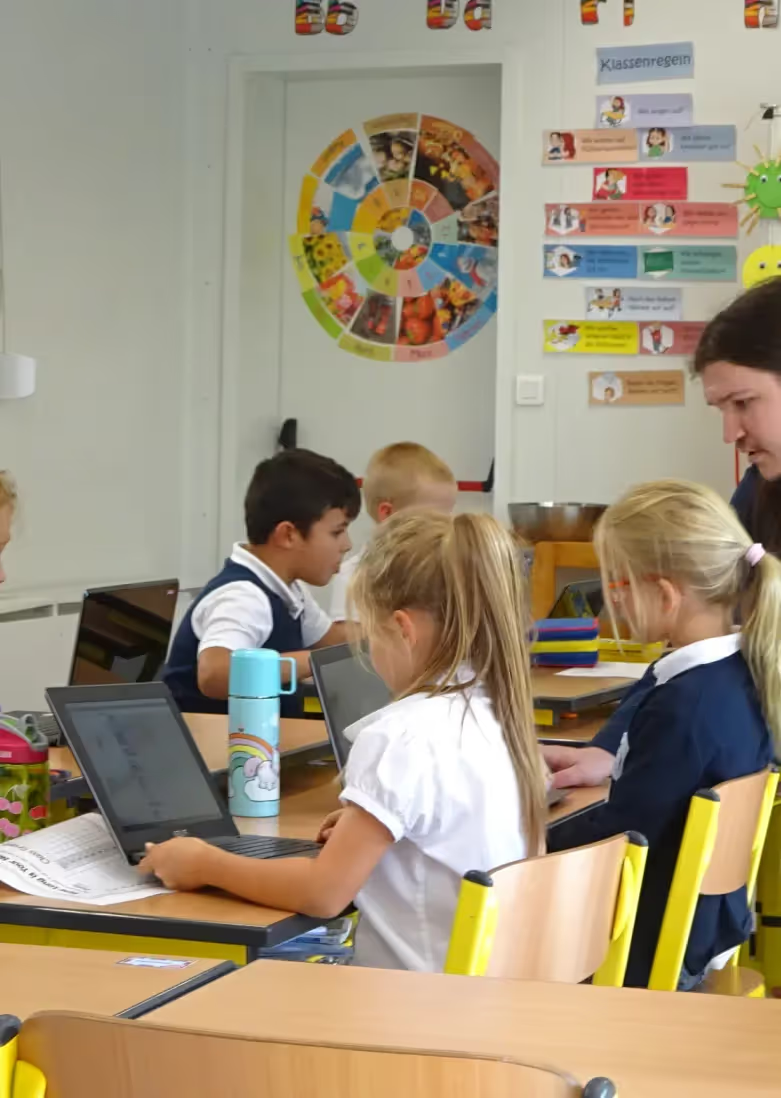
To enroll in AIS, it is necessary to fill out an online application form on the school's website (https://www.ais.at/admissions/apply-now) and attach the following documents:
- Previous school reports and academic records/
- Results of standardized testing, for example, ISA, NWEA-MAP, SSAT, STAR, Iowa, PSAT, CogAT, etc. for the last 2 years, if the student studied at an international or American school.
- Professional (stamped and signed) translation of school documents into English, if issued in another language.
- If available – the latest psychological and pedagogical assessment, individual training plan (IEP), evaluation of results of speech/labor/psychological therapy, progress reports (with certified translations, if they are not in English).
- A copy of the applicant's passport and/or birth certificate.
In the process of applying to the school, it is mandatory to pay a non-refundable EUR 600 (USD 680) fee. When enrolling a new student in the school, the reservation fee and enrollment fees are paid, which are EUR 3,000 (USD 3,400) each. Another obligatory fee for admission to the school is capital assessment, which constitutes EUR 6,000 (USD 6,800).
At the moment, the school is open to accepting applications for the 2022–2023 academic year. It is recommended to send an admission application to the school before February 1, 2022, because AIS will begin offering places to selected candidates in April 2022. In the current 2021–2022 academic year, to enroll a child in the school, you need to clarify the availability of places by contacting the AIS administration.
Tuition fees: from EUR 18,868 (USD 21,387) to EUR 22,099 (USD 25,000) per year.
School address: Salmannsdorfer Strasse 47, 1190 Vienna.
Phone and email: +43 1 401 32, Info@ais.at.
Vienna International School
Vienna International School is an authorized international baccalaureate school, where children study from the age of 3 to 19 years. The international school unites representatives of 112 nationalities and native speakers of 86 languages.
The school educates pupils aged 3 to 12 years according to the programme of preschool education and primary school PYP. The secondary school has 2 programmes: a Middle Years Programme (MYP) for students aged 11 to 16 years and the Diploma (DP) for students aged 16–19 years. Pupils receive international Baccalaureate diplomas upon graduation. The average scores of graduates are at the level of 36 and 98% of them successfully enter universities.
The school is constantly recruiting new students and accepts them throughout the school year (subject to availability). Currently, enrollment is open for the 2022–2023 academic year (the date of birth of the child should fall between the period from August 31, 2005 to August 31, 2019). You can submit an application through the OpenApply system by filling out the form on the website.
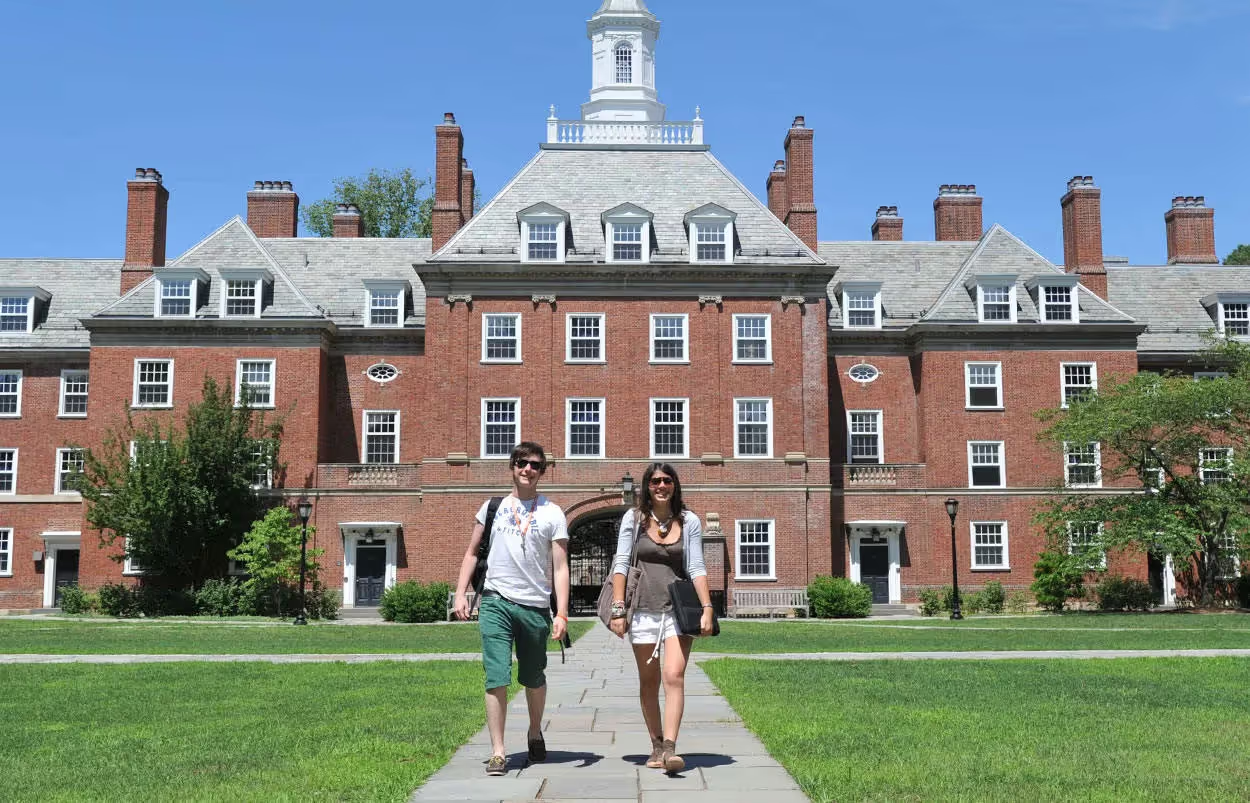
You need to specify contact phone numbers and email addresses, as well as upload copies of the following documents on the application form:
- Student ID card (passport) and 3x4 photo.
- Parent/guardian passport and 3x4 photo.
- 2 previous school report cards (originals and English translation if necessary).
- Credit card details for payment of the application registration fee.
- If necessary, you can download copies of the child's psychological and pedagogical assessment, certificates from doctors and an individual training plan.
Upon admission to the Vienna International School, parents of schoolchildren will have to pay a number of fees:
- Registration fee – EUR 540 (USD 612)
- Entrance fee – EUR 4,850 (USD 5,514)
- Capital contribution – from EUR 2,900 (USD 3,300) to EUR 4,150 (USD 4,718)
- Deposit – EUR 520 (USD 591)
The tuition fee varies depending on the class which can be from EUR 7,740 (USD 8,800) to EUR 23,424 (USD 26,632).
School address: Straße der Menschenrechte 1, 1220 Vienna.
Phone and email: +43 (1) 203 55 95, visinfo@vis.ac.at.
Theresianum (Stiftung Theresianische Akademie)
Private boarding school Theresianum is one of the oldest in Austria, which was founded in the XVIII century. Children from 3 to 14 years of age study here. The educational institution provides kindergarten, primary school and gymnasium services.
An in-depth study of foreign languages is one of the features of the Stiftung Theresianische Akademie. Mathematics, Latin, German, English, French and Russian are among the compulsory subjects taught here. Optional subjects are also taught at the school and special attention is paid to the education of good manners among schoolchildren. The institution offers great amenities and conditions for music, sports, creativity and natural sciences studies. A swimming pool, basketball court, 3 football fields, 2 beach volleyball courts and 2 climbing walls are located on Theresianum territory.
Requirements for potential high school students:
- Excellent report card from elementary school.
- Fluency in German, in oral and written form.
- For admission to grades 2–7, it is required that parents provide the last 2 school report cards (with translation into German). Knowledge of English or French, as well as Latin (from 4th grade) also required.
- High results shown in a personal interview with the school Principal.
- High level of socialization.
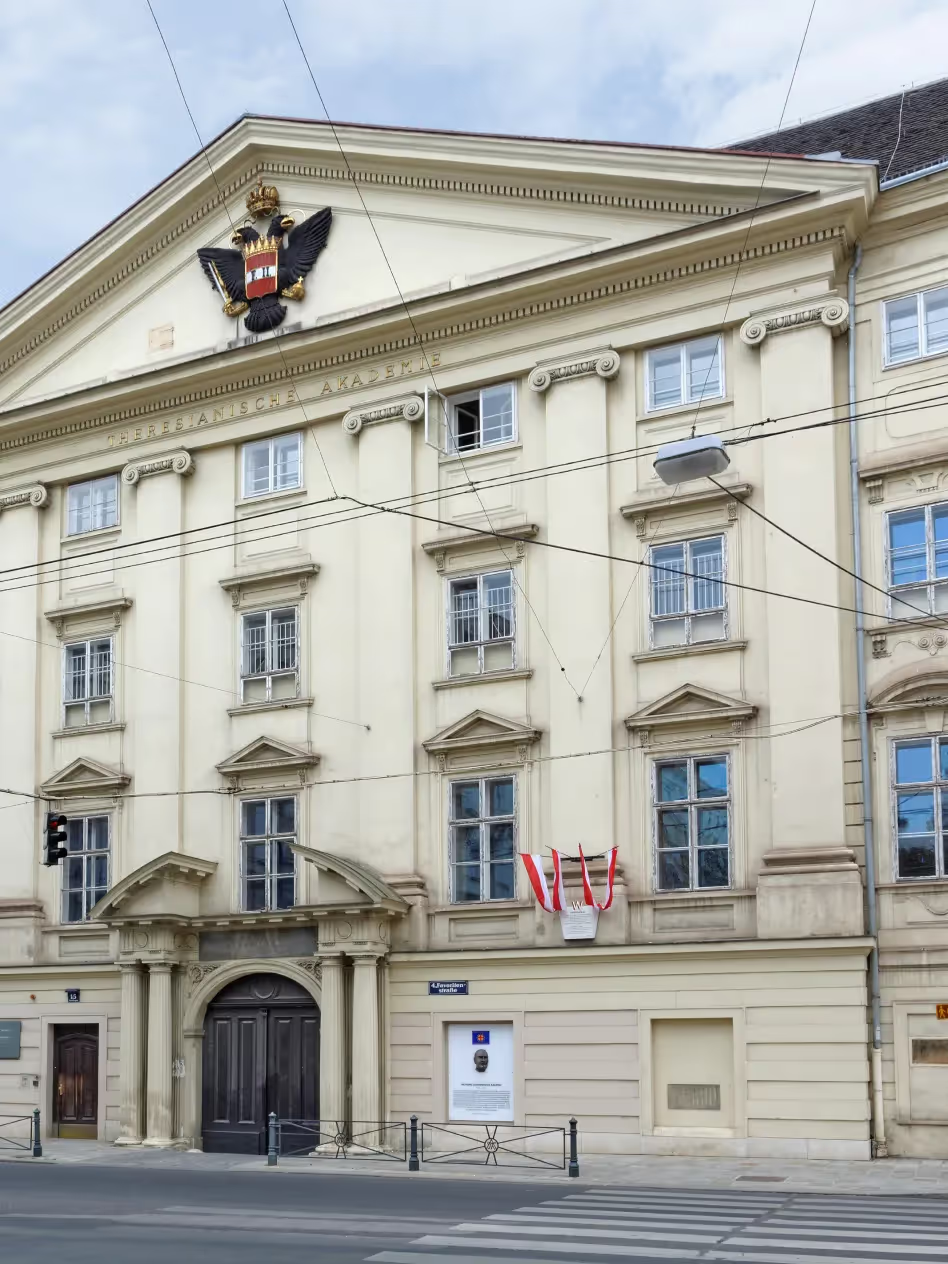
International students are provided with:
- 2-bed accommodation in a boarding house.
- Tracking the regularity of gymnasium lessons at the level of your class.
- Additional 4 lessons per week on the topic "German as a foreign language".
- Passing the ÖSD exam (Austrian Certificate of German as a Foreign language).
- Weekly cultural programmes for students.
- One individual lesson per week with a personal tutor.
- Visit to the theater or opera once a month.
- Sign up for dance courses at the highly respected Vienna dance school.
- Possibility to attend ski courses (in spring).
- Possibility of a 1-day excursion to choose from to Salzburg, Graz or Innsbruck, or to Bratislava or Budapest, every semester.
Tuition fees. For children from non-EU countries, the price of education in school constitutes EUR 9,000 (USD 10,232) per year. Tuition with accommodation in a boarding house costs EUR 16,700 (USD 19,000).
School address: Favoritenstraße 15, 1040 Wien.
Phone and email: +43 1 505 15 71, stiftung@theresianum.ac.at.
Campus Sacre Coeur Wien
Campus Sacre Coeur Wien is a private Catholic school of the Archdiocese of Vienna, where lots of attention is paid to Christian values. The school was founded in the XIX century and the educational institution includes a kindergarten, an elementary school, a secondary school, a gymnasium, a business school and a boarding house. Parents can leave their children for the school period in boarding houses and take them home on weekends and holidays.
The school is part of the international Sacré Coeur network, which includes 150 educational institutions in 30 countries around the world. Although the school has a Catholic bias, representatives of different nationalities and faiths can study here. Campus Sacre Coeur Wien consists of 2 branches: Rennweg 31 and Fasangasse 4. The kindergarten, gymnasium, elementary school, monastery church and a spacious park with sports facilities are located in the building on Rennweg 31. On Fasangasse 4 there is a secondary school, a commercial academy and a commercial school.
The educational institution offers comprehensive general education with an emphasis on foreign languages such as French, English, Spanish, Russian, Italian, Chinese and Latin. The curriculum also focuses on computer science and natural sciences such as chemistry, biology and physics. These subjects are taught in additional interdisciplinary and applied courses. In addition, the school has additional mandatory subjects like KLIMT and MINT, which are needed to deepen a child's talents from the 3rd grade. Children often go on excursions, hiking and attend lectures outside of the school grounds. Once or twice a year, all students of the school participate in the production of a musical, including dance performances, sewing costumes and preparing scenery.
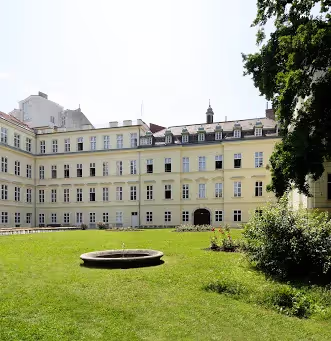
Admission process:
- Preliminary sending of the admission application via email to the school: volksschule@sacre-coeur.at or in writing to Fasangasse 4, 1030 Vienna.
- Booking an appointment by phone (+43 1 712 62 46/2 )for personal acquaintance. When visiting, it is necessary to have with you a recommendation sheet on the child’s behaviour and the academic performance of the child, as well as an annual certificate of the 3rd grade VS.
- Payment of a one-time fee for processing documents and registering a child to the amount of EUR 100 (USD 113). This fee provides a place in the school for your child.
Tuition fees: from EUR 1,800 (USD 2,046) to EUR 4,200 (USD 4,775) per year.
School address: Rennweg 31, 1030 Wien; Fasangasse 4, 1030 Wien.
Phone and email: +43 (1) 712 62 46, verwaltung@sacre-coeur.at, verwaltung.fasangasse@sacre-coeur.at.
Clara Fey Campus Maria Regina
This is another Catholic private school in Vienna where education begins with kindergarten, and school education provides 13 classes. Christian education is an obligatory part of the educational process as children study the Bible, participate in divine services and come to meet with priests. Maria Regina's pupils gain knowledge in basic school subjects and an individual approach to each child is one of the distinctive features of the school. The institution also offers motivational programmes for talent development, thematic circles and sections, and cultural education.
Maria Regina has both the Volksschule Maria Regina Elementary School and the Gymnasium Maria Regina (AHS). In grades 1–2 of AHS, all students study together, and then there is a division according to the child’s interests. Students can choose between two types of education, starting from grade 3, depending on their interests, capabilities and talents. For example, Gymnasium G offers a language orientation within the framework of general education: English, Latin, French, Russian, Italian and Spanish will be studied. Wirtschaftskundliches Realgymnasium is the second type of school, which specializes in business, economics and information technology.
The cost of primary school education is EUR 1,910 (USD 2,171) per year and the one-time registration fee, which is non-refundable, is EUR 80 (USD 90). Applications for admission to the school are accepted from April to June.
School address: Hofzeile 22, 1190 Wien.
Phone and email: +43 1 / 368 75 21 - 15, ahs.kanzlei@mariaregina-clarafey.at.
Level of the german language requirements
The requirements for foreign citizens in Austrian schools are quite lenient when it comes to languages. If the child has a poor command of German, he/she will still be enrolled in a public school and foreigners will also have in-depth study classes of the German language, instead of some lessons. And in most cases, foreign students are not evaluated in subjects during the first year of study.
If a child does not know German at all, then they can be admitted to a private school, in particular primary schools. But this issue needs to be discussed with the school administration, as a lot depends on the policy of the education institution and the decision of the school Director. One of the international schools, where the teaching is prioritized in English, can serve as a good alternative.
It is recommended to start preparing the child in advance before moving to Austria, so enrolling them in German courses or sending him/her to a language summer camp will help make a smooth transition.
Summary
- Austria offers free education in public schools for absolutely all students, including foreign citizens.
- School attendance by children aged 6 to 15 years is mandatory in Austria. This also applies to foreign citizens.
- Foreign citizens in Austria can send a child both to a public school where education is conducted in German and to one of the international schools where classes are held in English.
- Fluency in German is not necessary for admission to a public school in Austria. Foreigners are provided with an adaptation period.
- The certificate obtained in Austria does not need to be confirmed when entering universities in EU countries.
Share your contact details, and we will happily assist you in finding your dream property
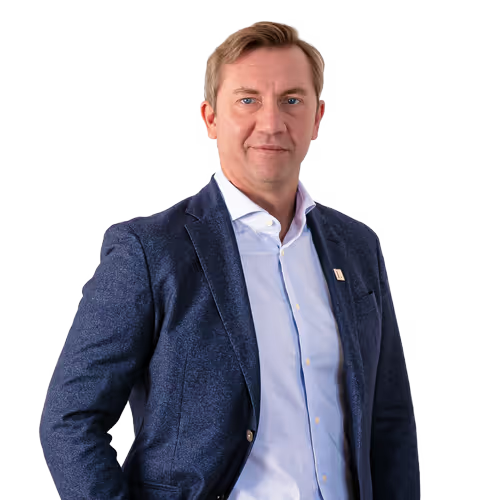
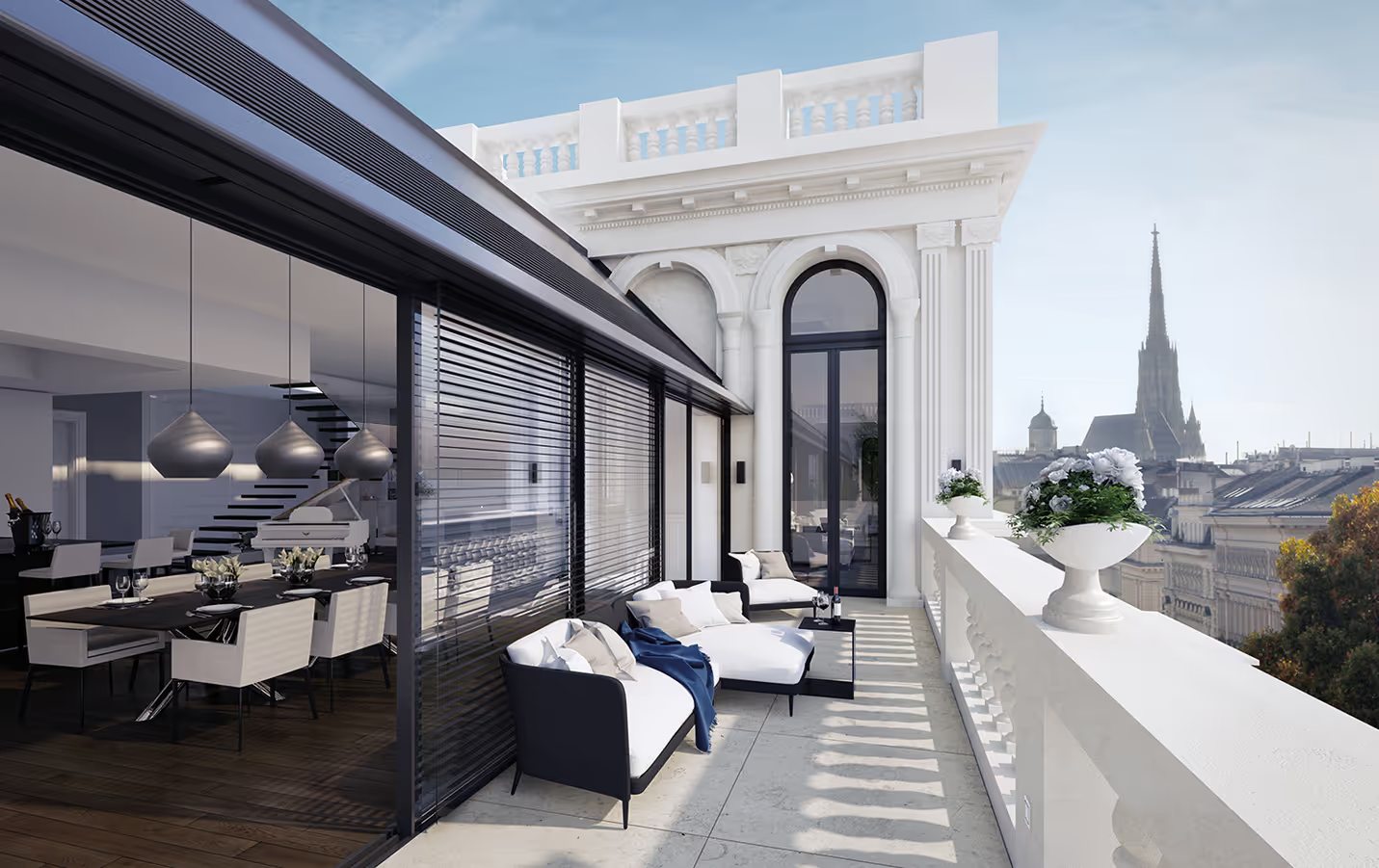




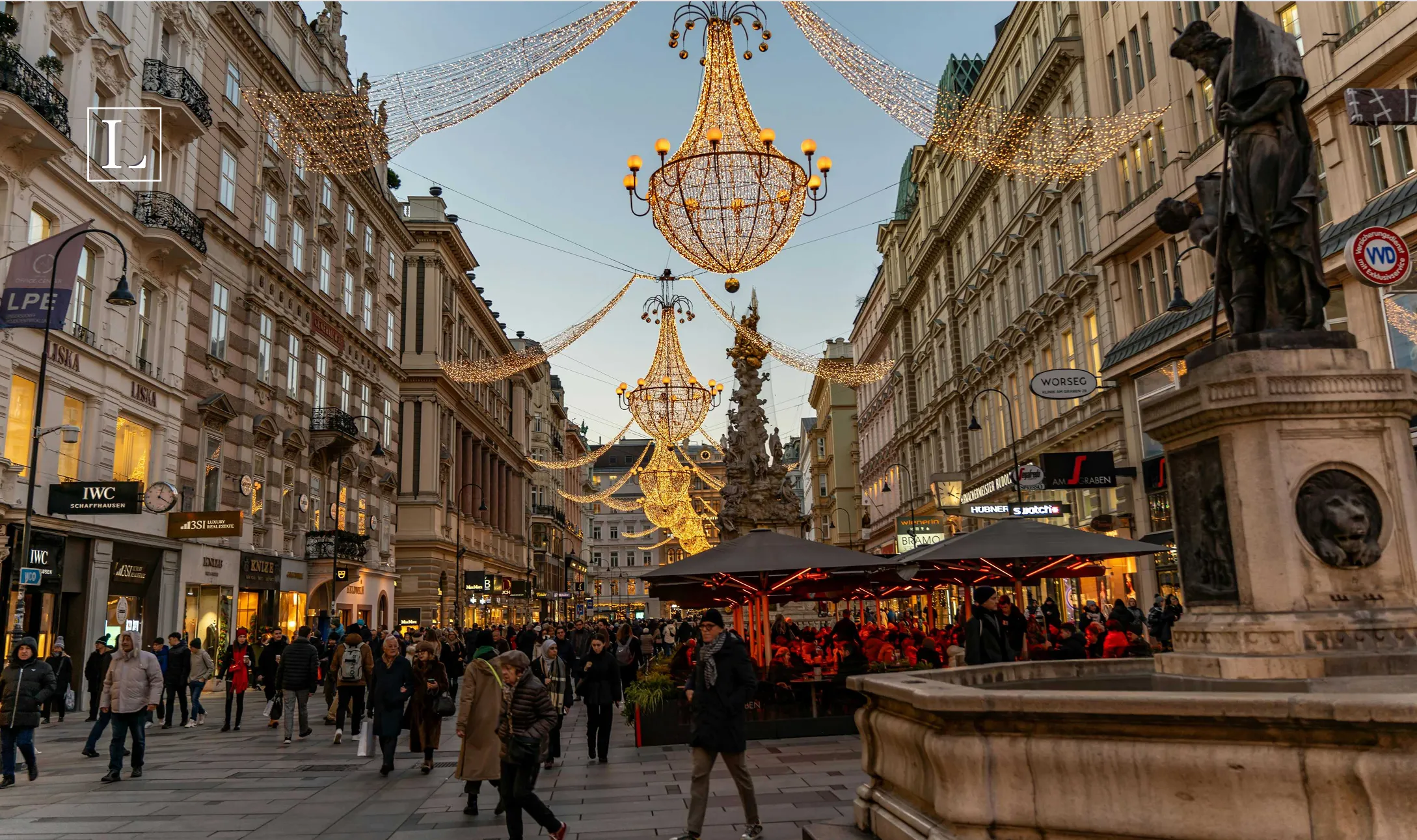
-p-2000.webp)
.avif)
%20(2).avif)





